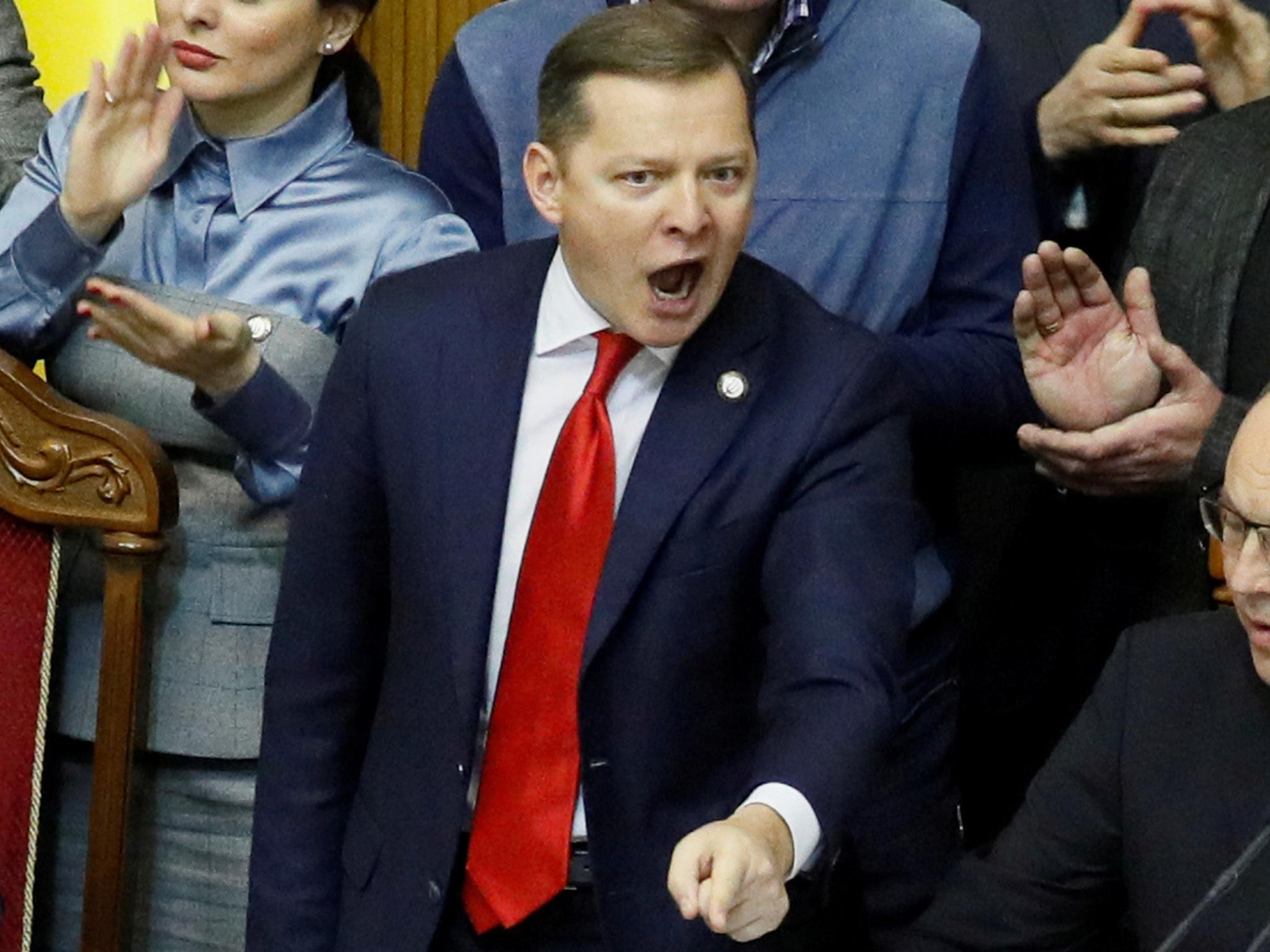Ukrainian parliament approves measures to forcibly castrate paedophiles
Experts are asking President Zelensky to veto controversial new law

Your support helps us to tell the story
From reproductive rights to climate change to Big Tech, The Independent is on the ground when the story is developing. Whether it's investigating the financials of Elon Musk's pro-Trump PAC or producing our latest documentary, 'The A Word', which shines a light on the American women fighting for reproductive rights, we know how important it is to parse out the facts from the messaging.
At such a critical moment in US history, we need reporters on the ground. Your donation allows us to keep sending journalists to speak to both sides of the story.
The Independent is trusted by Americans across the entire political spectrum. And unlike many other quality news outlets, we choose not to lock Americans out of our reporting and analysis with paywalls. We believe quality journalism should be available to everyone, paid for by those who can afford it.
Your support makes all the difference.Ukraine’s parliament has passed new laws introducing obligatory chemical castration for sex offenders, posing a significant test for the libertarian credentials of President Volodymyr Zelensky.
The new measures, which would force anti-androgen injections on men convicted of serious sex offences with minors, would make Ukrainian practice among the harshest in the world.
Coming on the back of several widely-publicised stories of child abuse, the change is likely to prove extremely popular with voters. But legal experts and medical professionals have roundly criticised the bill, and have appealed to Mr Zelenksy to intervene with a presidential veto.
Hurriedly introduced in the Supreme Rada’s final session on Thursday, the legislation seems to have an eye on next Sunday’s general elections.
Its authors, led by the nationalist populist Oleh Lyashko, are currently flagging in the polls, projected not to break the five per cent barrier required to stay in parliament.
In explanatory notes to the bill, Mr Lyashko said that he had introduced the measures in the absence of the death penalty. “It is unlikely that a rapist will now return to what he was doing,” he wrote.
The issue of child abuse has become a central issue in Ukraine’s election campaign following the abduction, sexual molestation and murder of a young girl in southern Ukraine.
Eleven-year-old Dariya Lukyanenko was found in a cesspool on 19 June, six days after leaving home for a dance class. A 22-year-old family friend later admitted to her murder.
The horrific story focussed attention on a bill already being considered in parliament. That proposal (number 6607) had been introduced in response to concerns that sexual crimes may be more widespread than reported. It suggested increased sentences, a closed paedophile register, and voluntary castration. It was backed by a broad coalition of MPs, police leaders, lawyers, prosecutors and psychologists.
Remarkably, however, at the last minute, a parliamentary sub-committee adopted Mr Lyashko’s alternative proposal. Two pages long, the text of bill 6449 was much shorter and had not undergone any expert evaluation. But its contents were much more radical, introducing compulsory castration; a public offenders register; and much harsher sentences.
Remarkably, it passed in two readings, with the support of 247 deputies – 21 more than was needed for it to pass.
The Independent spoke to several MPs who voted. Most admitted they were not fully aware of the details of what they voting for.
In the end, stupidity won
Anna Maliar, a criminologist who co-wrote the original bill that proposed only voluntary castration, told The Independent that Mr Lyashko had “deceived” MPs with his last-minute intervention.
“The MPs were not warned about the dangers of the law,” she said. “Chemical castration should never be used as punishment. When it is, it is by definition torture. The vast majority of the people convicted of sexual crimes with minors are perfectly healthy people. Forcibly castrating them is not the civilised thing to do.”
Mustafa Nayyem, a reformist MP who sponsored the original bill described the Lyashko amendment as “a legislative raid”.
“In the end, stupidity won,” he said.
Vyacheslav Abroskin, the head of Ukraine’s national police who had pushed for harsher punishments for sex offenders, also criticised the Lyashko legislation.
“Sometimes politics get in the way of adopting well-worked laws, on time, and in accordance with the Constitution,” he said. “We had hoped for amendment 6607 to be passed in full, but we will [continue] to work for it for the sake of our children.”
The new law needs to be signed by the parliamentary speaker and president before reaching the statute book.
The Independent understands that opponents of the bill are lobbying Mr Zelensky’s representatives, and urging them not to endorse the bill. But blocking an obviously popular measure may prove difficult. When contacted, Mr Zelensky’s spokesperson refused to comment on his intentions.
Oleksii Ryabchun, one of the MPs who voted for the bill, said that a compromise may be found in Mr Zelensky returning a modified bill to parliament early in its next sitting.
Join our commenting forum
Join thought-provoking conversations, follow other Independent readers and see their replies
Comments